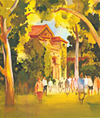 It’s Friday, and this week’s farm-to-table special at the Sagehen Café is a vegetable and mushroom risotto with organic beets, carrots, joi choi, zucchini, yellow squash, garlic and onions, most of it grown and harvested nearby at the Pomona College Organic Farm. For the past five years, the on-campus restaurant, housed in Pomona’s Smith Campus Center, has offered a Friday special made with fresh, organic ingredients from the student-run farm. If you want to try it, though, you may need to arrive early, because according to the café’s general manager, Cheryl Yarck, it usually sells out.
It’s Friday, and this week’s farm-to-table special at the Sagehen Café is a vegetable and mushroom risotto with organic beets, carrots, joi choi, zucchini, yellow squash, garlic and onions, most of it grown and harvested nearby at the Pomona College Organic Farm. For the past five years, the on-campus restaurant, housed in Pomona’s Smith Campus Center, has offered a Friday special made with fresh, organic ingredients from the student-run farm. If you want to try it, though, you may need to arrive early, because according to the café’s general manager, Cheryl Yarck, it usually sells out.
Farm to Table at the Sagehen Café
Sagecast The Podcast of Pomona College
The first season of Sagecast, titled “Backstories,” features Pomona faculty members discussing how they came to study what they study, teach what they teach and love the field they love. Sagecast offers our extended community a chance to listen in on vibrant intellectual conversations—whether on the train, in the car, at the gym or at home. Listen at Pomona College Sagecast or look us up on the podcast sites of Apple, Google or Spotify. Here’s a look at season 1:
Episode 1
Nicole Holliday
Linguistics & Cognitive Science
How does language build our own identities and vice versa?
Episode 2
Miguel Tinker Salas
History & Latin American Studies
Oil and politics: Growing up in Venezuela
Episode 3
Erica Dobbs
Politics
Citizenship as it relates to immigration and social protections
Episode 4
Lynne Miyake
Japanese
Japanese literature: From the Tales of Genji to Manga
Episode 5
Kevin Dettmar
English
The beginnings of literature and rock and roll
Episode 6
Guillermo Douglass-Jaimes
Environmental Analysis
When the environment, technology and public health tell untold stories
Episode 7
Gizem Karaali
Math
Math, the liberal arts, and math education
Episode 8
Tony Shay
Dance
The politics of choreography and dance
Episode 9
Lupe Bacio
Psychology & Chicana/o-Latina/o Studies
Addiction among immigrant communities
Episode 10
Sandeep Mukherjee
Art
How an industrial engineer became an artist
Episode 11
Genevieve Lee
Music
The life of a concert pianist
Episode 12
Nicole Weekes
Neuroscience
The physical and psychological sides of stress
Inside the Data
A team of math students from Pomona and Harvey Mudd took home one of the three top prizes at UCLA’s 2019 DataFest, winning for Best Use of External Data. Given a data set from the Canadian women’s national rugby team, Amy Watt ’20, Adam Rees ’20, Ethan Ashby ’21, Connor Ford ’20, and Madelyn Andersen (HMC ’22) found something important hidden in the data.“The really creative thing they did was to find flight information from looking at the social media proathletes,” explains Pomona Math Professor Jo Hardin. “They were able to come up with a very clear relationship between fatigue and flying.”
Watson Winners
Three Pomona seniors will follow their passions around the globe as recipients of Watson Fellowships, claiming three of the 41 $30,000 grants awarded nationwide. Here are Pomona’s winners:
- Eli Cohen ’19 plans to explore the relationship between technology and daily life in India, Norway, Spain, Malta and Burma.
- Blake Plante ’19 will study aspects of corporeal mime and physical theatre in France, Canada, Spain, Japan, Italy, England and South Korea.
- Jeremy Snyder ’19 will visit China, Peru, Brazil, Mexico, Ecuador and Chile to capture on film the real and conceptual characters evoked by rivers around the world.
Tops in Fulbrights
Again this year, Pomona has been named one of the top producers of U.S. Fulbright Scholars among bachelor’s institutions. At number 6, Pomona is the only California institution in the top 10. A total of 14 Pomona students and alumni were awarded Fulbrights for 2018–19, with two declining. The Fulbright competition is administered at Pomona through the Career Development Office.
Archiving Historic Costumes
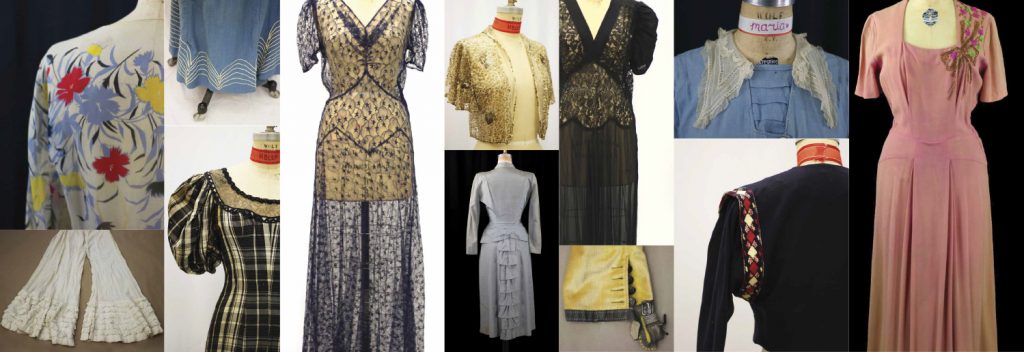 Tucked away inside the costume shop of Pomona’s Seaver Theatre is a collection of more than 150 historic garments—mostly women’s clothing dating from the 1920s to the 1950s. They’ve been used over the years, and many have grown delicate with age.
Tucked away inside the costume shop of Pomona’s Seaver Theatre is a collection of more than 150 historic garments—mostly women’s clothing dating from the 1920s to the 1950s. They’ve been used over the years, and many have grown delicate with age.
That caught the attention of Michael Mao ’19, a history major and theatre minor with an interest in costume design. With Theatre Professor Sherry Linnell serving as his advisor, Mao decided to combine his fields of study with a research project that encompassed two summers, culminating in the creation of a digital archive of the garments.
Mao spent much of the first summer of his project, in 2017, researching the background of the garments and comparing them to historical catalogs and books about typical women’s fashion of the times. He also noted, whenever possible, important details such as style, fabric, construction and trim.
The next step was photography of the garments. Linnell wanted Mao to consider them as three-dimensional objects, much like sculptures. This posed a challenge for Mao, who enlisted the help of Instructional Technologist Jason Smith.
Smith helped him acquire the necessary equipment—a manual camera with a timer, kit light reflectors and lightboxes—and together they assembled a pop-up studio with white and black backdrops against which to photograph the clothing.
Each garment was photographed from the front, back and sides in quarter turns, with additional photographs for interesting details or trims. After taking the photos, Smith spent time editing them to ensure their visual quality.
The digital image database will serve as a lasting resource for theatre and dance students to continue to engage with these historic garments, even though many of them have grown too delicate to pull out in person.
BY THE NUMBERS: The Class of 2023
In keeping with recent tradition, on the mid-March day that the College sent out acceptance letters to a new class of Pomona students, the staff of Pomona’s Offices of Admissions and Financial Aid rang the Sumner Hall bell 23 times to celebrate the Class of 2023. Here are a few facts about the new group of Sagehens:
726 first-year students admitted to the College
26 transfer students admitted, including 10 from community colleges
49 U.S. states represented, plus the District of Columbia and Puerto Rico
47 countries represented
57.9% of class are domestic students of color
13.5% of the class are international students
20.3% of the class are first-generation students
9 are military veterans, representing the Air Force, Army and Marine Corps
6 participated in the Pomona College Academy for Youth Success (PAYS)
Pomona Votes
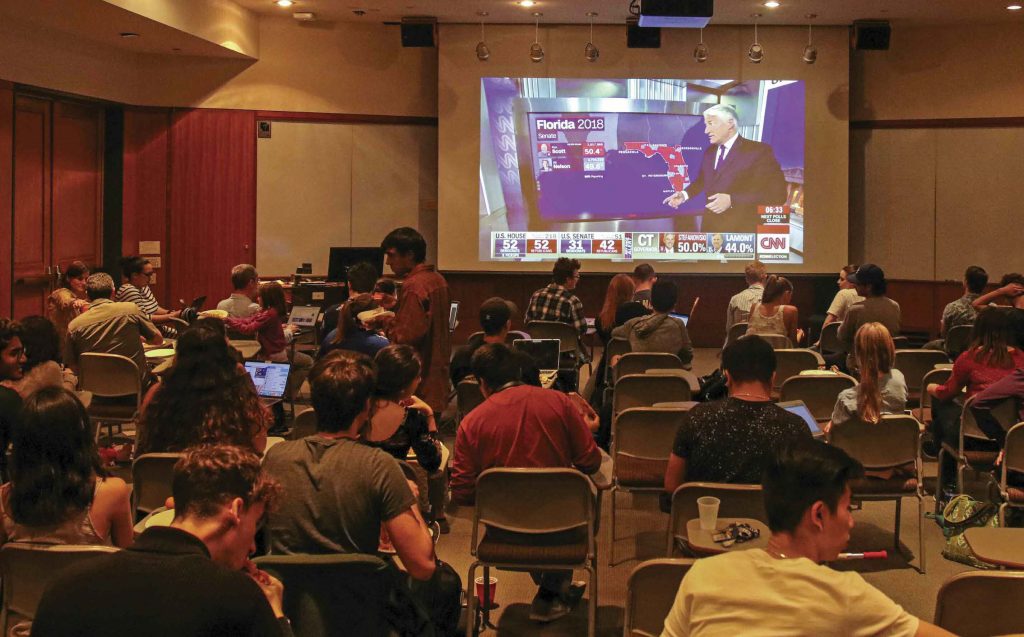
In the midterm elections of 2014, according to a Tufts University survey, only 17 percent of Pomona College students cast a vote. Four years later, a group of concerned Pomona students turned to an online voting support site to give those numbers a boost.
Student leaders Michaela Shelton ’21 and Lucas Carmel ’19 led the outreach effort, encouraging their fellow students to sign up with TurboVote, an online tool that helps users take the first steps to register to vote or to request an absentee ballot.
“A recent Pew study revealed that about 75 percent of nonvoters are not voting due to logistical concerns, confusion,” says Carmel. “Where to get a stamp? How to request an absentee ballot? Where’s their polling place? The same thing is true for college kids—but if you’re concrete with people and help them with the process, you can eliminate many of those barriers.”
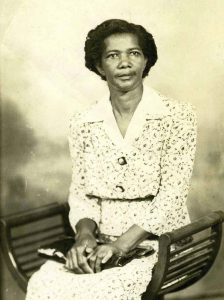
A portrait of President Starr’s grandmother, Ethel Starr, whose dedication to voting was featured in an op-ed in the Washington Post.
President G. Gabrielle Starr joined in encouraging students to get out and vote, not only on our own campus but across the nation. In an op-ed titled “Dear College Students: My grandmother waited 70 years for the right to vote. Don’t ignore this chance,” published in The Washington Post in late October, Starr told the story of her grandmother, Ethel Starr, who was nearly 70 when the Voting Rights Act was passed in 1965. “As a child in the 1970s and ’80s, I always knew when it was Election Day,” she wrote. “My grandma got dressed in her Sunday best, put on her black shoes, hoisted her hard, black pocketbook, adjusted her hat and waited by the door for my father to drive her to the polls. She never missed an election. …”
“Do something no one else can do for you,” Starr concluded. “The students I’ve worked with know I love a good dare. And I send one back. I dare you.”
The efforts at Pomona seem to have succeeded in stimulating greater interest in voting, as TurboVote reports that about 40 percent of all Pomona students—703 to be exact—signed up for the service prior to Election Day.
Tech for Sleepy Drivers
 Driving back to campus from L.A. late one night, computer science major Eberto Andre Ruiz ’19 felt himself drifting off at the wheel. Worried, he grasped for a solution.
Driving back to campus from L.A. late one night, computer science major Eberto Andre Ruiz ’19 felt himself drifting off at the wheel. Worried, he grasped for a solution.
“I’m like, ‘Man, this is not safe,’ so I told Siri to set a timer for every five minutes,” he says. “I woke up the next morning and thought, ‘I’ve got to make an app for this.’”
Enter the 5C Hackathon—a one-night coding competition. In early November, Ruiz joined classmates Peter Nyberg ’19, Thomas Kelleher ’19 and Brook Solomon ’19 to built a prototype called Olert, with the O reminiscent of a steering wheel.
“Basically we were interested in doing something that was ‘Tech for Good,’ an idea in some way applicable to the real world,” Nyberg says. “This is something that takes lives.”
Using a camera and eye-tracking software, they built a system that would vibrate the steering wheel if the program detected signs of drowsiness in the driver’s eyes.
One after another, checking out some of the 20 projects submitted after the Hackathon, students from the 5Cs sat down and gripped the makeshift steering wheel the team fashioned with the leather cover from the steering wheel of Ruiz’s Nissan Altima. Sure enough, they felt it vibrate when their eyes closed.
As a result, Olert took the Hackathon’s top prize for the best “Tech for Good” project.
Accessible Geology
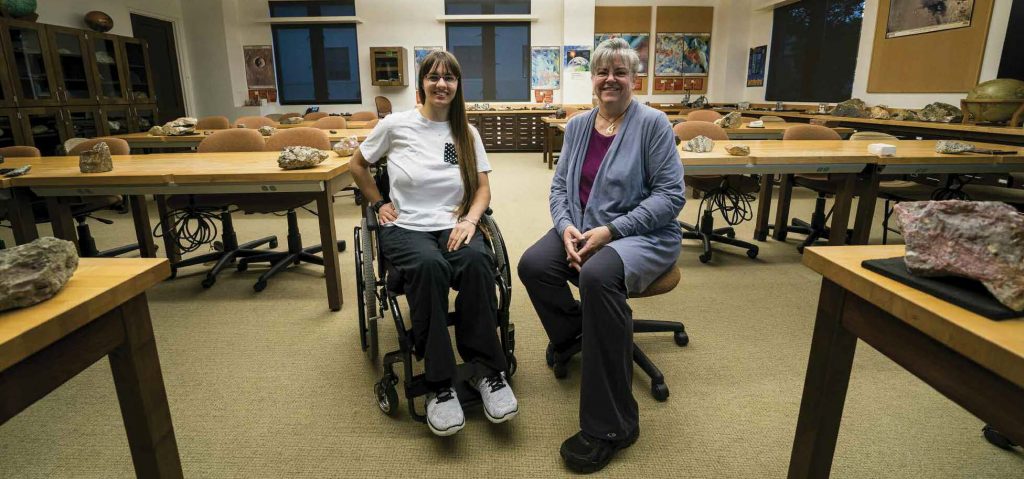 Alida Schefers ’21 usually makes the first contact with her professors to let them know she uses a wheelchair and may need accommodations. Last year, however, it was Professor of Geology Linda Reinen who contacted Schefers, inviting her to visit the classroom where Reinen’s Intro to Geohazards class would take place and talk over plans for the class field trip. Since then, the bond between Schefers and Reinen has strengthened, and the classroom experience has changed for the better—for all of Reinen’s students.
Alida Schefers ’21 usually makes the first contact with her professors to let them know she uses a wheelchair and may need accommodations. Last year, however, it was Professor of Geology Linda Reinen who contacted Schefers, inviting her to visit the classroom where Reinen’s Intro to Geohazards class would take place and talk over plans for the class field trip. Since then, the bond between Schefers and Reinen has strengthened, and the classroom experience has changed for the better—for all of Reinen’s students.
In her revamped classroom, the most important rock samples now sit at the end of narrow tables with spacious and cleared aisles that ensure a wheelchair user can move with ease. A stream table (a tall table that demonstrates stream erosion) has a camera with a bird’s-eye view. The video is played back on a large screen for all students to see the action without having to crowd around.
Reinen’s changes may seem minor, but they make the classroom accessible in a major way. It was these changes that the International Association for Geoscience Diversity (IAGD) took note of when the group honored Reinen with the 2018 Inclusive Geoscience Education and Research (IGER) Award, given to instructors who promote or implement inclusive instruction and research that supports active engagement by students with disabilities.
“If everyone were mindful of a missed opportunity for a disabled student and took the time to advocate on their behalf, then the changes would be immense,” Schefers says. “One of my favorite sayings is: ‘If everyone did a little, no one would have to do a lot.’”


